Way Too Indie’s Most Overrated And Underrated Films Of 2015
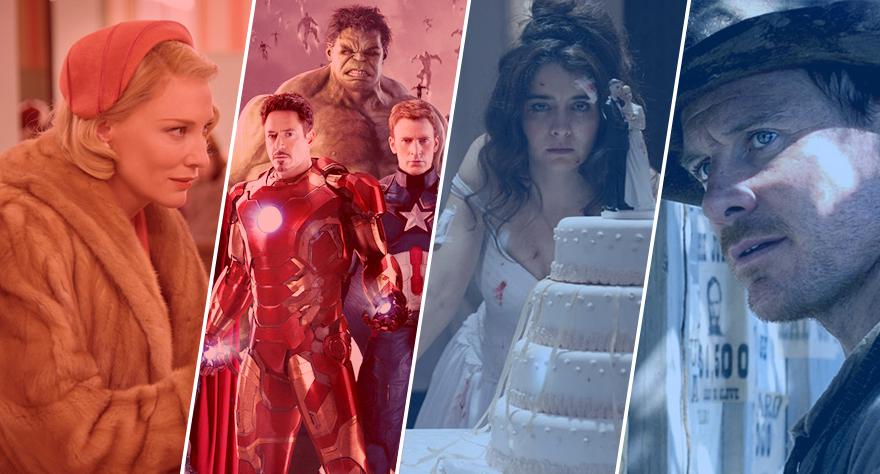
As everyone at Way Too Indie scrambles together to watch and rank as many films as they can before the end of the year, we decided to spend some time knocking down and propping up some of what 2015 had to offer. The fun part about having writers with such diverse tastes is that it’s hard to find a consensus, leading to many (friendly) disagreements and arguments between people. After doing our first overrated/underrated feature last year, we had such a fun time we decided to make it a yearly tradition here on Way Too Indie.
All of our writers were tasked to pick one overrated and one underrated film, along with an explanation for their choices. Read on below, and if you happen to disagree with any of our sentiments, we’ve included a link to most of our staff’s Twitter handles where you are invited to express your outrage or agreement or let us know what we’ve overlooked.
Way Too Indie’s Most Overrated And Underrated Films Of 2015
Aaron Pinkston 
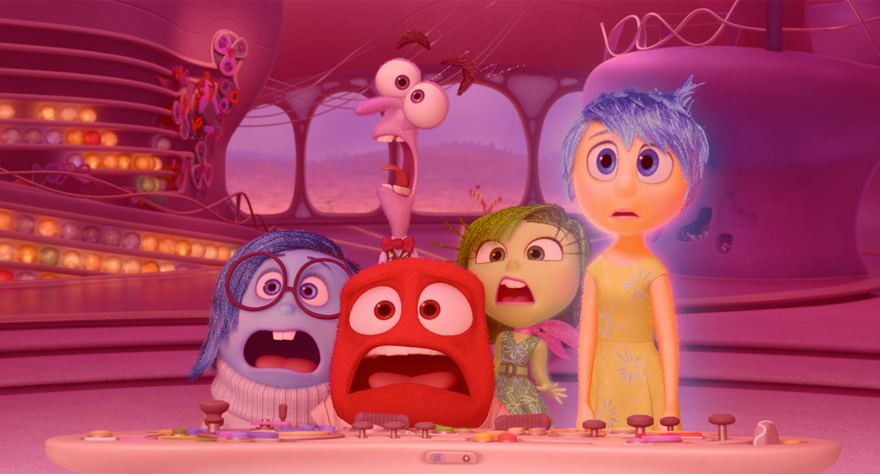
Inside Out is overrated
Pixar’s first offering of 2015 has become one of the studio’s most successful films—only behind Toy Story 3 in terms of box office and with a 98% approval rating on Rotten Tomatoes. I’m not going to argue that Inside Out isn’t a good film, but it simply didn’t connect with me on a personal level as it has for the public and critical audiences. Many of the film’s relative problems come with the broad nature that allows it to connect with so many. This is mostly true of its humor, which often plays for easy stereotypes even as its emotional complexity is strong. The characters inside of Riley’s head are of course broad by design, but the core relationship between Joy and Sadness aside, this isn’t the height of Pixar. Some have forecasted a heated battle against Anomalisa for animated film of the year (and that even excludes When Marnie Was There, a fantastic film that’s also in this feature), but it seems like a relative shoo-in for Inside Out, especially with the film garnering Best Picture nomination predictions for the Oscars—the new model nod for cultural transcendence in animated film.
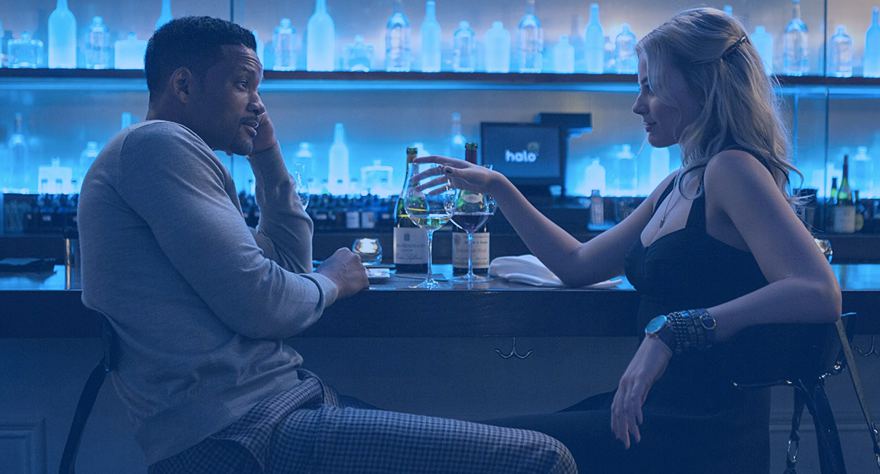
Focus is underrated
One of the great film trends of 2015 was the many great throw-back entertainments. While Focus may be a little flashier than Bridge of Spies and Spotlight, it too shows the pleasures of how solid a ’90s-era flick can be. The biggest appeal of the film is Will Smith, who again shows that he is a bonafide movie star in case you forgot. The actor’s natural charm is incredibly fun to watch, in full effect with terrific chemistry with co-star Margot Robbie—they are good enough together that it’s easy to forget the wide age gap between them. As for the film’s plot: the con man hijinks don’t do anything new, and some of the film’s twists aren’t too hard to see coming, but the pace is quick and there are a few excellent scenes. The anchor scene of the film, where Smith gets into a heated double-or-nothing battle with the great B.D. Wong at the Super Bowl, builds dynamically and stands on its own as one of the best scenes of the year. Like many of the ’90s films that it reminds me of, Focus will be a welcome addition to the cable movie cycle for years to come.
Ananda Dillon 
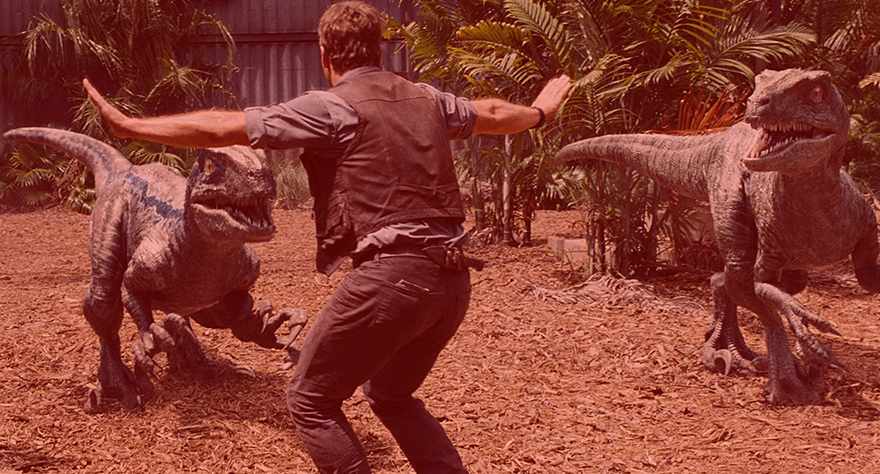
Jurassic World is overrated
Immediately after viewing Jurassic World I turned to my viewing partner, a look of disgust forming on my face, to discover that she and almost everyone else in the theater were high on some sort of flashy, merchandised, nostalgia-pandered fairy dust. And apparently the rest of America (and the world) fell victim as well, as this film is the highest grossing of 2015. I admit I had hopes, not even high ones, of the film playing just the right amount on my love of the first film, on their being bigger and badder dinos, of Chris Pratt being the dinosaur-whisperer who’d steal my heart and Bryce Dallas Howard the badass chick who’d save the day. What I got was more Starbucks and Mercedes logos than my brain could even process, a chick inexplicably running through a tropical island in heels, and (the biggest offense in my mind) the sudden introduction of vindictive dinosaurs. The entire premise of the first film can be boiled down into man vs. nature (umm, life finds a way, duh) and now we’re supposed to swallow the notion of 22-years of fraternization with humans suddenly allowing for cognitive decision making on the part of these “animals”? It’s one thing for a raptor to hunt kids in a kitchen instinctually, another for them to follow Chris Pratt and crew around the park on some sort of mission. The other plot holes are so numerous I have no room to elaborate but I continue to be bewildered at how many people were so dazzled by the special effects and novelty of a new Jurassic Park film that they not only dismissed the absurdity happening in front of them but praised a film that pretty much spits on its source material. I guess Dr. Malcolm would call this the truest example of chaos theory.
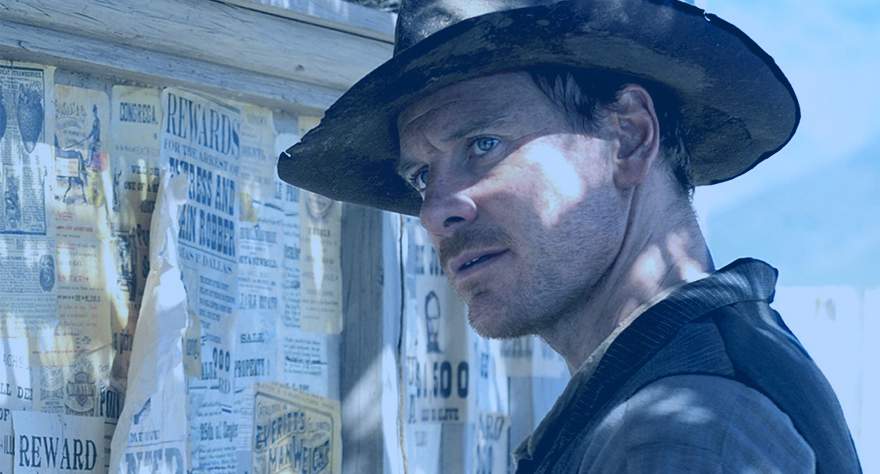
Slow West is underrated
So it’s not going to make the top of anyone’s Best Westerns of 2015 list as this is surprisingly a heated year for the genre. Bone Tomahawk has gotten more buzz, The Hateful Eight is primed and ready to blow us all away (in 70 mm!), and The Revenant has star power and artistry out the wazoo. But as much as I know what to expect from those films, Slow West has to be the most surprising western of the year. Maybe it was a marketing problem or a release date mismatch but the film came and went with not nearly enough hullabaloo. Big-namer Fassbender just wasn’t enough to counter a relatively nobody director, John Maclean, and I for one had no idea just how charming the film would be or how much it would ooze eclectic humor. Watching it evoked a similar smugness as watching a Wes Anderson film with all the darkly surprising gristle of a Coen brothers film. It’s oddly romantic for a western, lost love being the driver of the action, and incredibly well performed, especially breakout Caren Pistorious who I genuinely hope to see in more films soon. It may not make Top 20 of 2015 lists, but I hope it has a sort of second coming for those who realize they shouldn’t have glossed over this one.
Cameron Morewood 
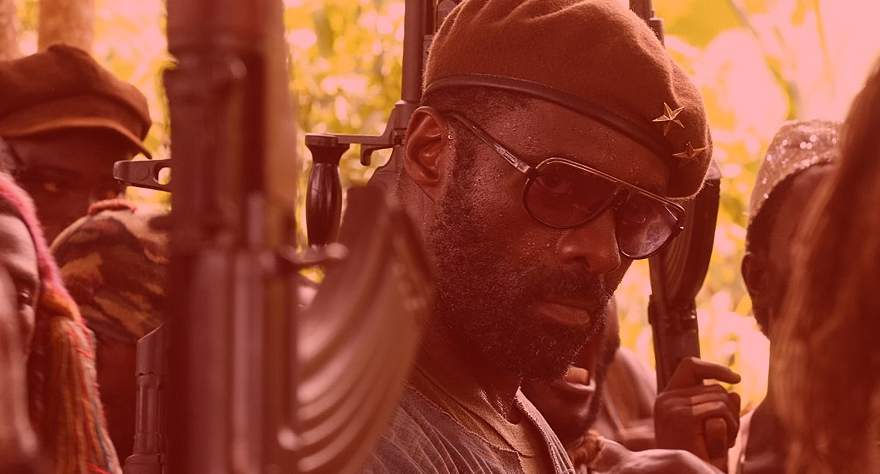
Beasts of No Nation is overrated
With Beasts of No Nation, Cary Fukunaga is often more concerned with demonstrating his ability to showcase flashy visuals than he is with staying true to the heart of his story and characters. The film’s mise en scène consistently feels detached from the human beings on screen. Raids and chase sequences are depicted in crude slow motion and accompanied by awkward synth music. Idris Elba is certainly a saving grace. Many of the children in the film, including the lead (Abraham Attah), also proved to be surprisingly talented actors. With a different director who possessed a better understanding of how to respond to the material and stylized his film accordingly, Beasts of No Nation could have been something that wasn’t so easily forgotten.
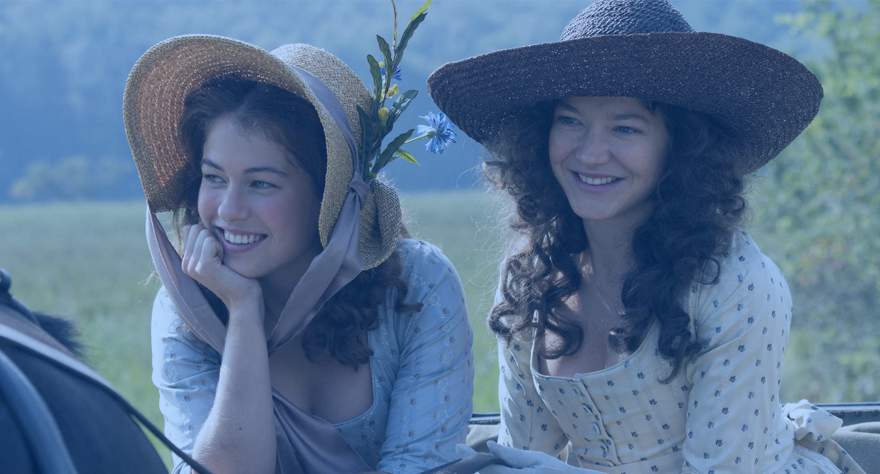
Beloved Sisters is underrated
Beloved Sisters had the unfortunate fate of being intended as a December 2014 release, but being dumped off in January instead. As a result, it was either overlooked or forgotten about by many. But what filmmaker Dominik Graf gives audiences is a rich and epic melodrama, bolstered by a trio of exceptional performances and cinematography which is often classical, but occasionally off-base, deviating into territory more commonly associated with other genres. It’s also lavishly produced and wonderfully scored—its locations feel genuine and lived in, absent of CGI in its rendering of a baroque atmosphere.
Byron Bixler
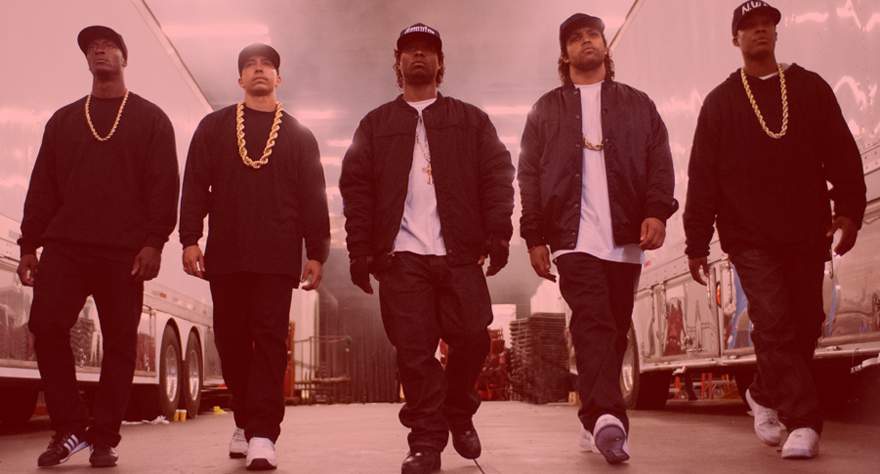
Straight Outta Compton is overrated
As a big fan of old school hip-hop, Straight Outta Compton was one of my most anticipated films of the year. The genre and the artists who work within it has rarely been addressed by Hollywood, and the few times it was represented, the results were shaky at best (I’m looking at you, Notorious). But with an exciting marketing campaign and the active involvement of Ice Cube, Dr. Dre and Eazy-E’s widow, I had confidence that this might be different.
I want to make it clear that Straight Outta Compton is not a bad film—it’s just alright. F. Gary Gray’s direction is fluid, the concert and party scenes have an infectious energy, Jason Mitchell gives a breakthrough performance in an ensemble of solid turns and the needle drop moments are on point. However, the script is where I begin to scratch my head at the universal praise. It’s an ambitious sprawl of a story, but all the character relationships, ambitions and internal issues are painted out in broad strokes. The dialogue is frustratingly on the nose and low on nuance, with several moments playing out with the simplistic instincts of a TV movie of the week. I’m thrilled that Straight Outta Compton has sparked a resurgence of interest in late ’80s/early ’90s hip hop, but it could have been so much better. I can’t help but think we’re settling for less due to the film’s weak field of competitors.
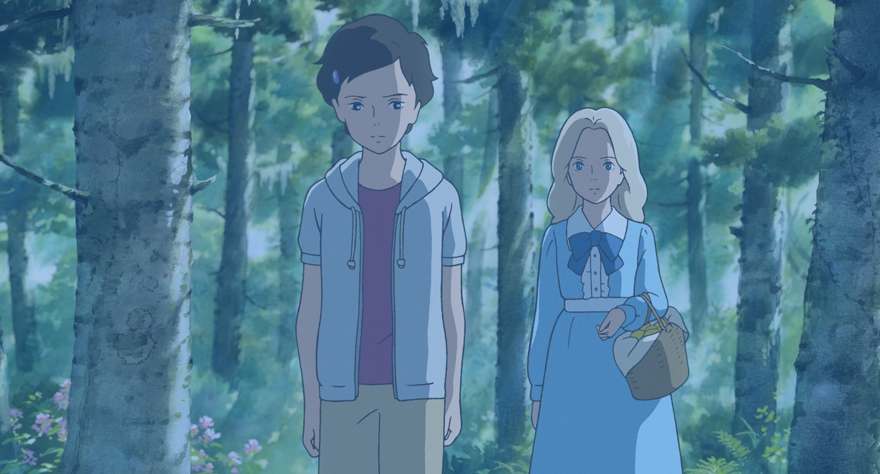
When Marnie Was There is underrated
While most Studio Ghibli films open to a rapturous response, When Marnie Was There seemingly came and went without a word this summer. The only substantial discussion revolved around its status as Ghibli’s last film before taking an extended break. Perhaps this was because it lacked the overtly imaginative fantasy of Spirited Away or My Neighbor Totoro. Or maybe it’s because it wasn’t quite as distinctive in its animation or storytelling as last year’s sensation, The Tale of the Princess Kaguya. Whatever the reason, When Marnie Was There is an emotionally charged gem that soars on its sensitivity to themes of depression, abandonment and alienation. Heavy stuff for sure, but when filtered through the prism of a mysterious spectral tale, it becomes amazingly accessible to both young and old viewers. It’s a ghost story that’s tender rather than frightening and a family film that levels with its audience, refusing to pander and getting to the heart of very real childhood issues. There’s a lot to dig into here, and while it might not be top tier Ghibli, it stays true to the studio’s tradition of beautiful, smart, and universally relatable filmmaking.
Bernard Boo 
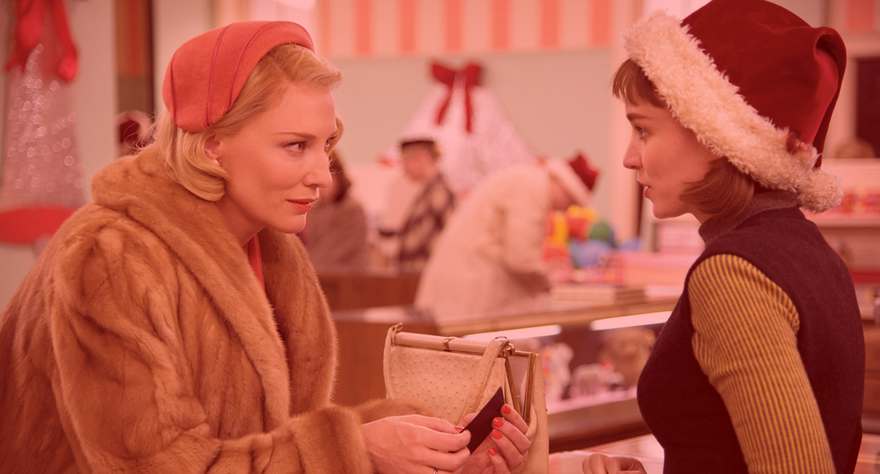
Carol is overrated
Todd Haynes’ Carol is one of the most overwhelmingly beloved films of the year; on this issue, I stand a lonely outsider. Perhaps there’s some deeper beauty that’s lost on me, but I found the film to be emotionally cold and half-awake. Lifeless, even. It’s ironic for a movie so visually colorful and sublime, but that’s what makes it so irreconcilable in my head. The production and costume design are unbelievably good, and the performances by leads Rooney Mara and Cate Blanchett are solid. But I could never shake the feeling that the whole movie felt like an overly studied Examination on the laws of attraction (capital “E” intended). The warmth of the production and Haynes’ directorial style too often doesn’t gel with the cerebral, structured material, an issue that consistently kept me at arms length from the story and its characters. There are a lot of amazing things going on in this movie, but I feel as if the movie needs a big hug, both to heat it up and to bring its terriffic-but-disconnected elements to a tighter state of cohesion.
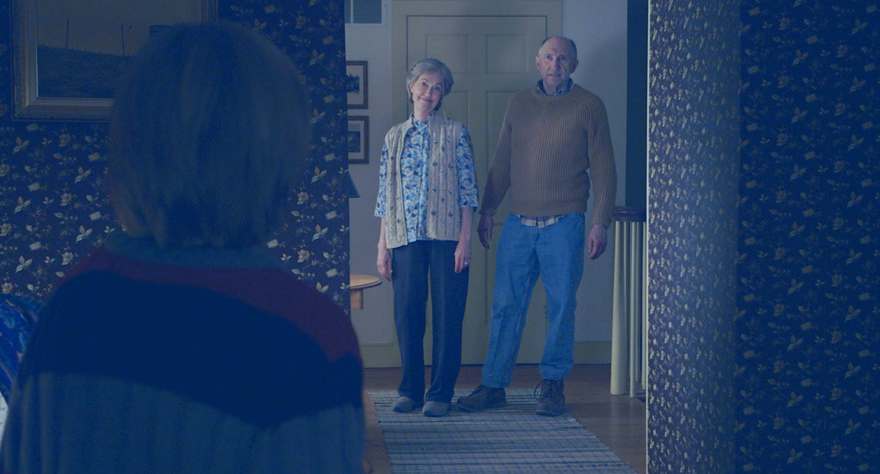
The Visit is underrated
The first movies M. Night Shyamalan’s made will haunt him forever. I won’t name them here—we all know what they were and, more importantly, how goddamn good they were. Audiences have been watching his movies with arms folded and a skeptical smirk ever since, waiting for him to capture his former glory. He hasn’t, which is unfortunate, but with The Visit it feels like Shyamalan’s finally dropped that weight he’s had on his shoulders for all those years and is starting to have fun again. This selfie-generation take on Hansel and Gretel is wild, mischievous, scary, wickedly funny, and most importantly doesn’t take itself so seriously. It’s not a film that will resurrect Shyamalan’s credibility completely, but I think I’m through with using his early films as the ultimate measuring stick for his career. The Visit is one of the most entertaining horror movies of 2015, though I think the context of its filmmaker’s larger career has stifled its success.
Blair Hoyle 
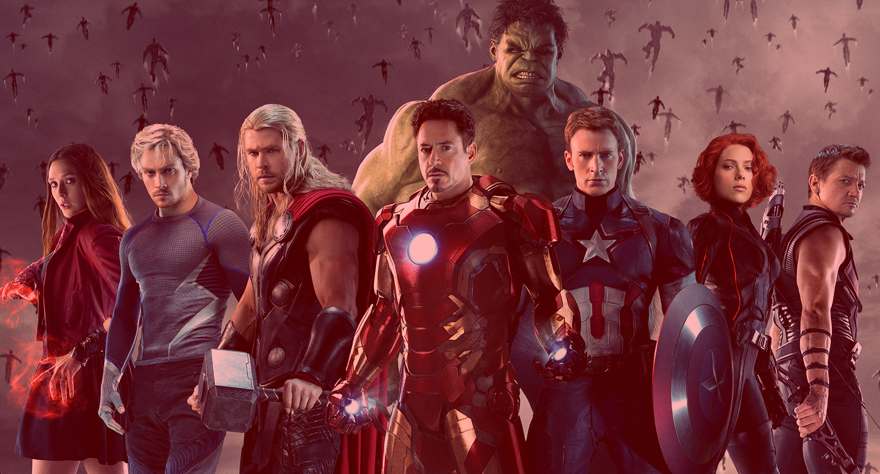
Avengers: Age of Ultron is overrated
It truly speaks to the generic, predictable nature of most current superhero movies that Avengers: Age of Ultron wasn’t even particularly well received. And yet it’s still overrated. Another by-the-numbers comic book adaptation that tries (and fails) to convince the audience that the indestructible characters are actually in danger, the film rarely—if ever—provides any emotional stakes. When the most entertaining moment of a high-octane superhero movie is when the characters are just kind of hanging out at a cabin, you know something has gone horribly wrong.
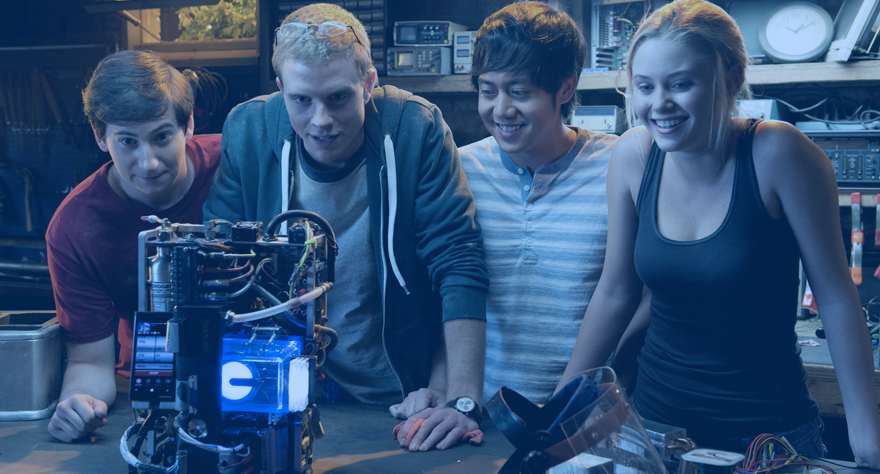
Project Almanac is underrated
At a time when a vast majority of found footage films follow a formulaic blueprint and execution, Dean Israelite’s Project Almanac brings something new to the table. A time travel film that doesn’t find its protagonists saving the world from a government conspiracy, Project Almanac instead focuses on high school kids doing high school things. They use their time machine to attend past music festivals, to win the lottery, and impress love interests. It’s an insanely charming film, filled with excellent performances that showcase its young cast’s comedic and dramatic acting skills. It’s energetic, exciting, and sure to elicit equal amounts of cheers and laughs.
C.J. Prince 
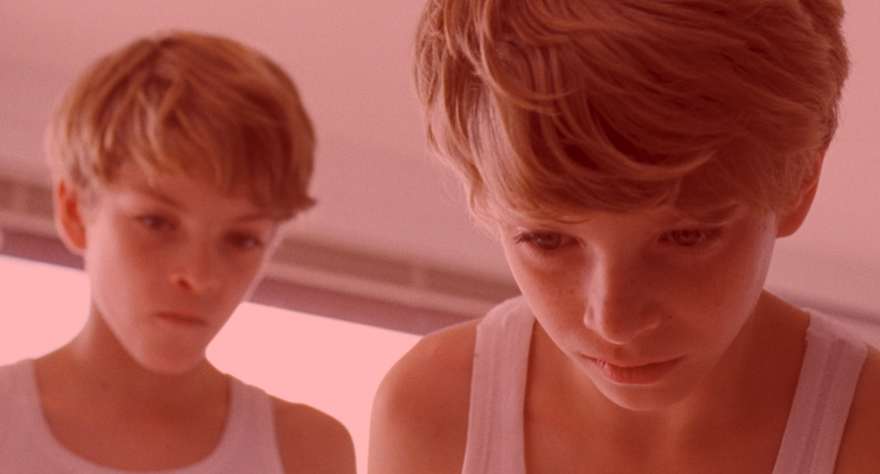
Goodnight Mommy is overrated
Did critics get collectively hit on the head by a brick when they praised Goodnight Mommy? A torture porn dressed up in Euro arthouse clothing, Goodnight Mommy is an exercise in austere agony that uses violence as a distraction from the fact that it has nothing to say. It starts off as an intriguing story about twin brothers who think their mother—whose face is bandaged up after getting surgery—is a sinister impostor, but that’s about as interesting as things get. Eventually writers/directors Veronika Franz and Severin Fiala decide to let the boys tie their mom up and torture her to see if she’s really their mother. Franz/Fiala try to be ambiguous about whether the boys’ suspicions are justified, but in this case it’s irrelevant. If their mother turned out to be an alien/ghost/demon/<insert evil thing here>, does that make watching her lips get sliced open any less gruesome to watch? And it’s not like showing this sort of gore is an achievement in horror either; wincing at a woman screaming while someone flosses her gums until they tear apart is a natural reaction, not evidence that the people putting it on screen have any talent. Goodnight Mommy is just a vacuous torture chamber, and shouldn’t be looked at as anything more than an Eli Roth movie with a better cinematographer.
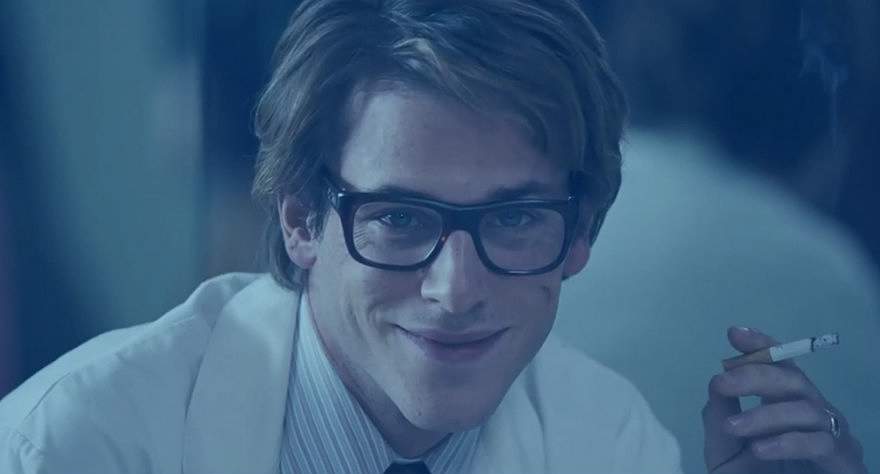
Saint Laurent is underrated
Saint Laurent is a strange case for me, since it’s a film I feel passionate about yet it’s one I can’t really defend. It’s definitely a flawed film, one that overstays its welcome and gets lost in itself plenty of times, but out of the countless movies I’ve seen this year this one still rattles in my mind from time to time. Bertrand Bonello has made what I’d be more comfortable calling a far masterpiece rather than a near masterpiece, a film that comes to life in sublime flashes while being surrounded by more plodding and mediocre parts. Besides having a terrific cast and a killer soundtrack (Bonello is flawless in this department), Saint Laurent takes a more intriguing approach to a biopic; it’s more concerned with nailing down the moods and emotions of what being Yves Saint Laurent would be like, a sort of boundless opulence that comes with holding so much talent and wealth. And when Bonello nails that aspect, Saint Laurent hits a seductive, giddy high that no other film this year comes close to matching. It’s understandable why Saint Laurent can prove to be a frustrating experience given its flaws, but that doesn’t mean it should be tossed off or derided. It’s a film that has the courage to try and (more importantly) fail, a quality that should be embraced rather than opposed.
Dustin Jansick 
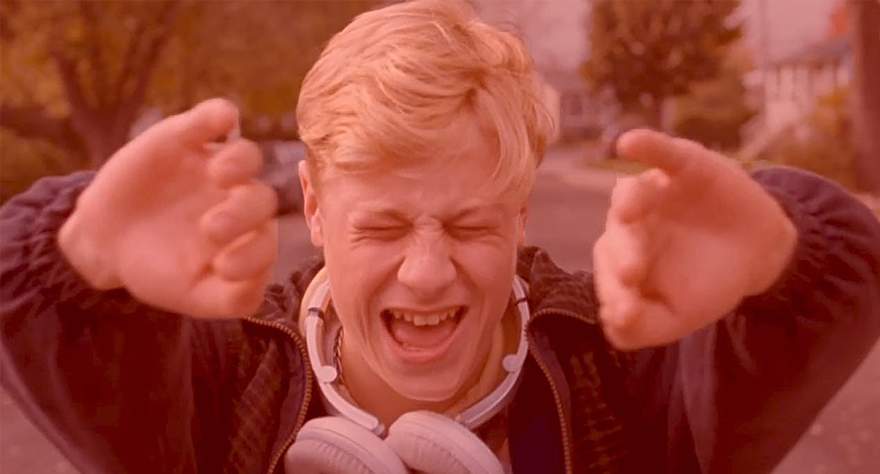
Mommy is overrated
I’m not sure if there were more obnoxious characters than the mother-son duo in Xavier Dolan’s Mommy. Somehow the film walked away with the Jury Prize at the Cannes Film Festival and caused even more people to praise the ground beneath Dolan. These characters are irritating by design: the boy (played by a hyperactive Antoine-Olivier Pilon) suffers from ADHD, causing violent outbursts like setting a fire in a school cafeteria and screaming on the top of his lungs for no apparent reason, and the mother (Anne Dorval) is equally unpleasant with her nonchalant attitude on life. Eventually, all the child-like screaming and hitting just becomes exasperating and downright insufferable. Then there’s the frustrating 1:1 aspect ratio. Dolan devotees will tell you this was an essential part of the film which leads to a some sort of epiphany. But I’m here to tell you it’s more of a gimmicky stylistic choice, paired hilariously with Oasis’ overplayed song “Wonderwall”. So while I respect Dolan as a filmmaker—I think some day he may be considered one of the greats—most of his films end up feeling like exercises in self-indulgence, and Mommy is no exception.
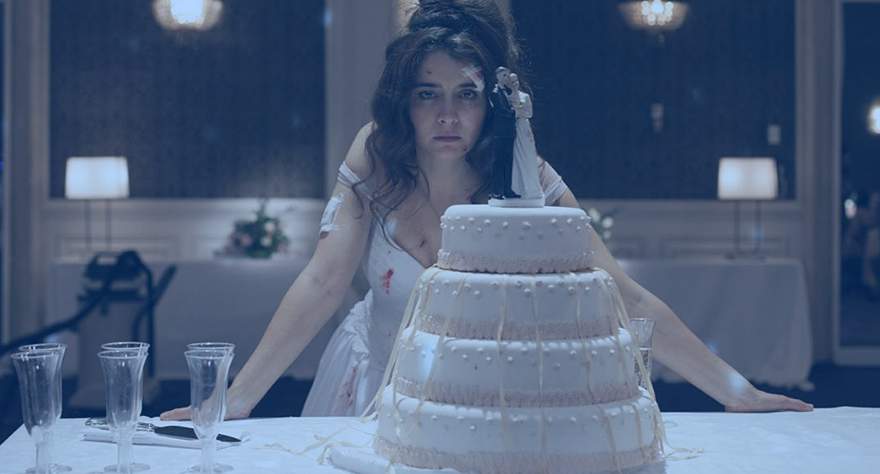
Wild Tales is underrated
The only logical explanation as to why more people aren’t talking about Damián Szifron’s Wild Tales this year is that they didn’t realize it counts as a 2015 release (in the U.S.) after generating so much buzz last year from its Oscar nomination for Best Foreign Language film. Szifron’s wild anthology film consists of six short tales, each with the same theme of revenge along with plenty of absurd humor. With perhaps the best opening scene of 2015, Wild Tales starts things off with the shortest of its tales: passengers on a plane quickly discover inconceivable connections with each other, realizing it’s more than just a coincidence just before the story comes to abrupt end. With each new story, Szifron finds inventive ways to up the stakes. Most involve well-mannered characters methodically planning schemes to take down the person that wronged them. Of course, their plans don’t always work out perfectly. The final chapter concludes with an outrageous scuffle when a bride finds out her husband cheated on her with one of their guests, resulting in the most ridiculous and awkward wedding reception of all time. Given its anthological nature, there’s never a dull moment in Wild Tales. What’s better than a well-told revenge tale? Six of them.
Michael Nazarewycz 
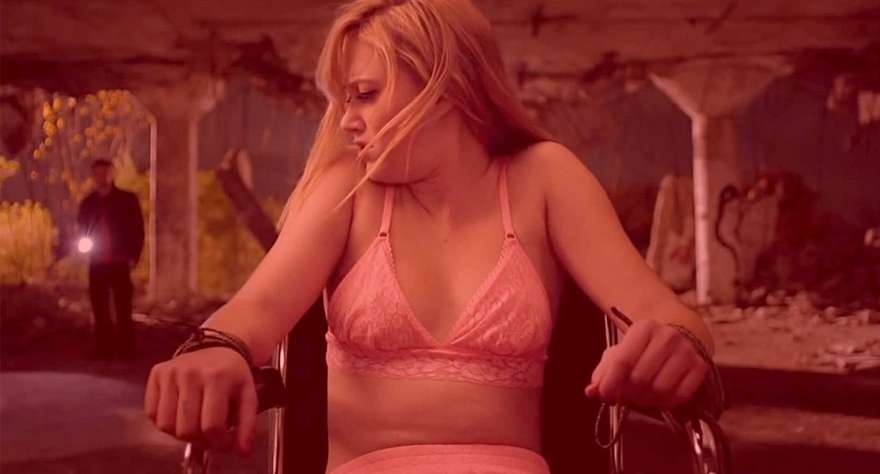
It Follows is overrated
What David Robert Mitchell did with It Follows—this year’s darling of the indie horror scene—is pretty neat. The film’s conceit alone is clever enough: a shape-shifting (though frequently unseen) entity hunts a person—in slow walking, ’80s slasher style—until it catches and kills that person. But if that person sleeps with someone, the person with whom the hunted slept with becomes the new target. Complementing that is a score by Disasterpeace that invokes memories of the great John Carpenter scores of the 1980s. And Mike Gioulakis’s cinematography? To die for. And yet. For as visually great as It Follows is, the other two key points the film’s devotees cling to—the conceit and the score—are flawed and highly overvalued. The score, while wonderful on its own, is as oppressive as it is random in its application. It’s as if Mitchell isn’t sure when to use it, so he uses it when he thinks he should, which is too often. The greater sin, though, is how fast and loose the film plays with its own rules. I’m usually not one to nitpick such things, particularly in the horror genre, but the film’s premise—hell, its entire marketing campaign—is all about “The Rules”. But once the film gets deeper into the second act, Mitchell, who also wrote the screenplay, needs to cheat those rules to keep the film going. That simply doesn’t fly. It Follows is a good film, but it’s too imperfect to be as revered as it is.
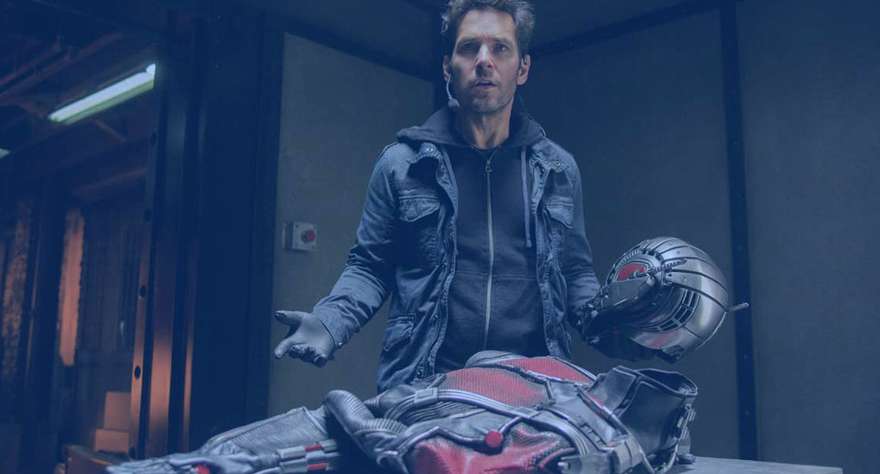
Ant-Man is underrated
A pair of things have hampered a full appreciation for Ant-Man. The first is the foolish melodrama that preceded the film’s release—melodrama created by the internet when the film’s original director, Edgar Wright, left the project. The second is the film having been released after Avengers: Age of Ultron. Because The Avengers brought the Marvel Cinematic Universe’s Phase One to a close, it only seemed fitting that Ultron close Phase II and leave the fans waiting for the next major all-out Avenger-fest, Captain America: Civil War. But along comes Ant-Man, closing out Phase II and wedging itself between two event pictures. But what a wedge it is. Not only does Marvel (again) take another familiar film style—this time the ’50s sci-fi flick, cross-bred with a heist film—it makes it so much more than just another man-in-tights entry on a list. Besides the very effective scenes where Scott Lang (Paul Rudd) is miniaturized, there is a depth of character and a structure of relationship that is surprisingly impressive, and makes Lang something of a contemporary of (and dare I speculate, heir apparent to) Tony “Iron Man” Stark. Both are technically savvy, both have father/father-figure issues, and both are, in their own ways, tied to the MCU canon at a high and critical level, namely, the early days of S.H.I.E.L.D. (both also have strong women beside them). But while Tony is the “Genius Billionaire Playboy Philanthropist,” Scott is the “Resourceful, Blue-Collar, Father-of-One Convict.” Sure, those are opposite sides of a coin, but it’s the same coin, and because of this clever and deep connection, I look forward more to the future of Ant-Man than any other MCU hero.
Nik Grozdanovic 

Amy is overrated
Fame is evil. Something that most of us who’ve seen enough fiction and non-fiction films on the subject have no doubt gathered by now. Director Asif Kapadia doesn’t seem to think so, however, because that’s the just about the only message his doc Amy is sending out. Amy Whinehouse had an incredible voice; she was a naturally gifted jazz singer whose songwriting was basically diary entries broken down into poetic verses. Depending on individual closeness and knowledge of her personal demons, backstage abuses, and unfortunate circle of people, Amy will be hitting all kinds of chords. But, looked at objectively (or, as objectively as possible when judging any piece of artistic expression) we’re looking at a completely average, by-the-books, documentary that reveals very little real insight, and keeps hitting the same point over and over ad nauseam. At the time of writing this, Amy has won Best Documentary with both the LA Film Critics and New York Online Film Critics associations, making it that much more overrated. Wanna see a great documentary about a celebrity? Choose Listen To Me Marlon instead.
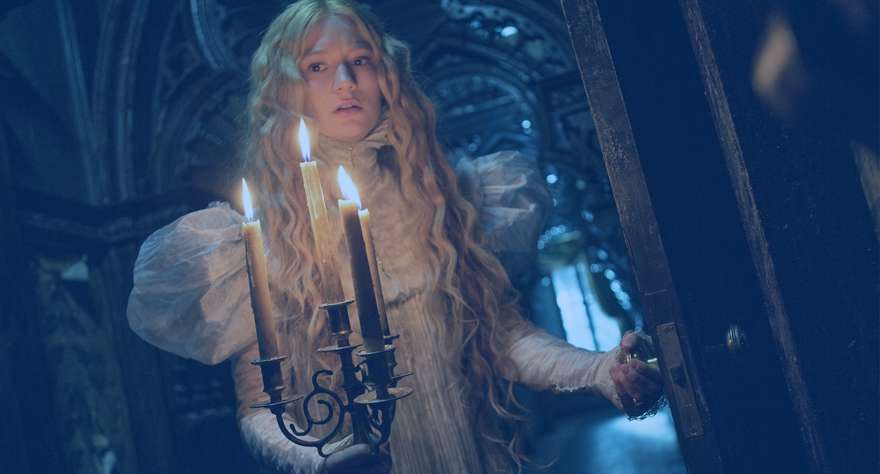
Crimson Peak is underrated
Guillermo del Toro might have directed his best film to date (time will tell if Pan’s Labyrinth and The Devil’s Backbone will be surpassed overall, but they certainly are on a technical level) and yet, no one’s really talking about Crimson Peak. Featuring a triplet of outstanding performances by Mia Wasikowska, Tom Hiddleston, and Jessica Chastain—the latter slipping into uncharted villainous territory like she’s been playing baddies her whole career—the film also drips volumes of atmosphere and boasts a production design to die for. With del Toro’s classic mesh of romance, horror, and seeking the beautiful in the monstrous, Crimson Peak manages to even add new layers to the director’s signature trademarks. Painted in thick Gothic brushstrokes and flowing more like a first edition Victorian novel than a 21st-century motion picture, it’s a fantastic ghost story made all the more compelling by being told mostly through resplendently old-fashioned imagery (costumes, set designs, etc.) A truly spellbinding experience that I implore everyone to seek out and get lost in.
Zachary Shevich 
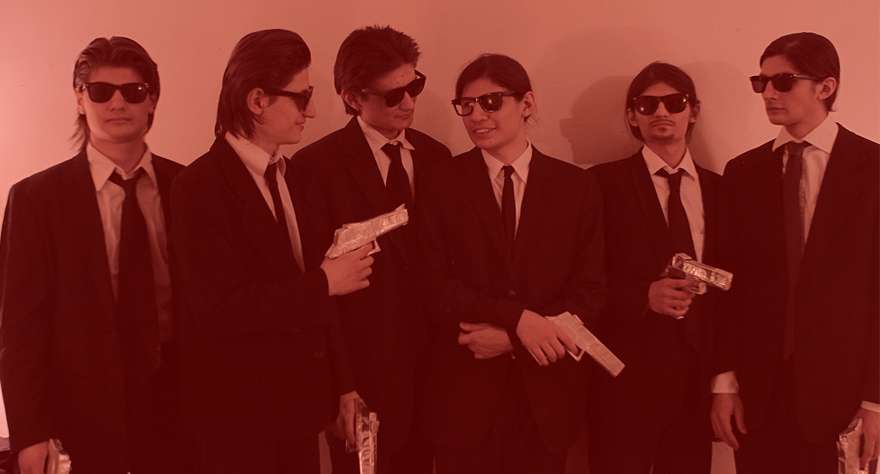
The Wolfpack is overrated
Coming off of The Wolfpack’s premiere at this year’s Sundance Film Festival, there was a lot of excitement around Crystal Moselle’s debut documentary as well as the lanky, longhaired clan of film geek Angulo brothers. The film took Sundance’s Best Documentary Feature award, the Angulos partnered with Vice Films to produce an experimental arts & crafts short film, and The Wolfpack received an overly positive review from me during the glow of the Tribeca Film Festival. At the time, Moselle’s discovery of a group of eccentric lo-fi filmmakers confined to a Lower East Side apartment by an abusive father was simply too compelling to ignore. Yet, their story remains an enigma—even months later. Moselle’s film raises twice as many questions and it answers. Her decisions to keep elements of the documentary and the Angulos’s timeline vague makes the liberation arch fall flat. I noted the filmmaker’s hesitation to dive deeply into her subjects in my April review of the film, but in retrospect that treatment is severely limiting. The approach denies curious viewers a fuller experience. The Wolfpack is a prime example of film’s subject matter exceeding the quality of the filmmaking around it.
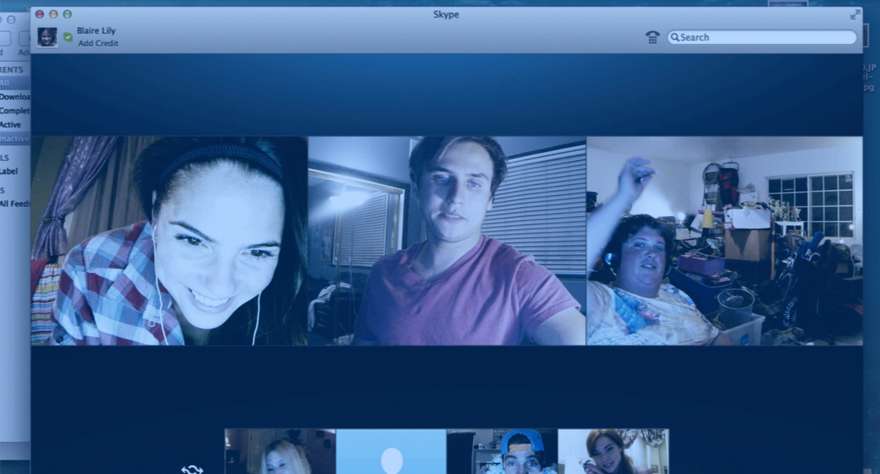
Unfriended is underrated
Perhaps Unfriended wasn’t best suited for big screens. Watching it on the intimacy of a laptop monitor—the same way the film’s final girl Blaire (Shelley Hennig) experiences the action—creates an immensely chilling effect. Unfriended is a lot more than a riff about young people living their lives through technology. It’s a smart and effective thriller about a ghost that exploits the comforts of private, digital spaces that we create for ourselves online. Director Leo Gabriadze and writer Nelson Greaves ambitiously contain the entire story to a continuous shot of a glitchy computer monitor where the main character clicks through her iTunes library, her deceased friend’s Facebook photos and a group Skype chat infiltrated by the “hacker ghost.” Unfriended has the potential to rely on computer-generated gimmickry and “teen speak” but doesn’t. Gabriadze and Greaves gives each member of this friends group their own skeleton-filled closets, which allows the tension to stem from their increasingly tense dynamic. As the friends turn on one another, it shifts the attention away from an all-powerful digital demon and back to the computer users themselves. Sporadic use of some laptop-related gags (such as the diagetic soundtrack moments) punctuate an enjoyable, slightly campy horror with amusing comedic relief; however, Unfriended wastes no moment of its 83-minute runtime. Gabriadze & Greaves exhibit their mastery of elevating and deflating the stakes.
